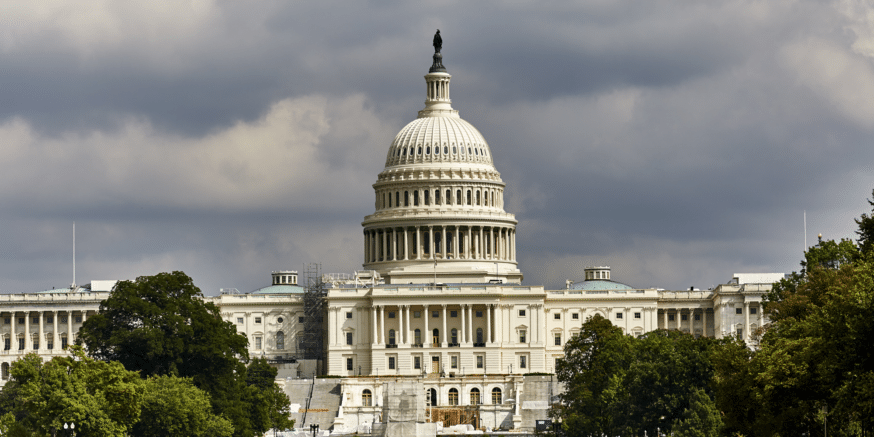TLDR
- Coinbase warns IRS is unprepared for the volume of crypto tax filings.
- Senate hearing discusses the need for clarity on crypto tax exemptions.
- IRS faces staffing cuts as it tackles growing crypto tax challenges.
- Lawmakers debate de minimis exemption and tax rules for small crypto gains.
During a recent U.S. Senate Finance Committee hearing, both the crypto industry and the Internal Revenue Service (IRS) faced tough questions regarding the taxation of digital assets. With billions of transactions flowing through exchanges like Coinbase, tax officials may struggle to manage the volume of information. As lawmakers debate potential tax reforms, uncertainties surrounding the industry’s future tax rules remain high.
IRS Faces Challenges with Crypto Tax Filings
At the hearing, Lawrence Zlatkin, Vice President for Tax at Coinbase, expressed concerns about the IRS’s ability to handle the vast amount of information the agency will soon receive. Zlatkin emphasized that Coinbase alone will generate a significant volume of tax data, which could overwhelm the IRS. “We’re going to be testing that in a little while,” he said.
He further pointed out that the sheer number of transactions in the crypto space demands that tax regulations be both clear and manageable.The introduction of new crypto brokerage reporting forms has added to the pressure on the IRS.
The forms are designed to improve transparency in crypto tax filings but raise questions about whether the agency is equipped to process them. With numerous uncertainties surrounding the tax treatment of crypto activities, such as staking gains or small transactions, industry stakeholders continue to wait for clearer guidance from the IRS.
Uncertainty Over Tax Rules Leaves Industry in Limbo
Despite the IRS’s efforts to implement crypto-related tax rules, major questions remain unanswered. One of the key topics discussed at the hearing was the potential for a “de minimis” exemption, which would exclude small-scale transactions from being taxed.
This exemption would benefit both consumers and businesses by reducing the complexity of tracking minor transactions. However, lawmakers have yet to make decisions on this or other key issues, such as whether gains from staking should only be taxed when they are sold.
Senator Mike Crapo, chairman of the Senate Finance Committee, acknowledged the lack of clarity in the current tax code. “Our tax code does not provide straightforward answers for many digital asset transactions,” he said. This uncertainty leaves taxpayers and businesses unsure of how to comply with existing tax laws, creating a significant challenge for the crypto industry.
Diverging Views Among Lawmakers on Crypto Taxation
The hearing also saw differing perspectives on how to approach crypto taxation. Democrats focused on the potential for tax avoidance and criticized the efforts of crypto lobbyists pushing for favorable rules. Senator Elizabeth Warren, in particular, raised concerns about crypto billionaires benefiting from tax rules that may favor their interests.
On the other hand, Republicans, including Senator Cynthia Lummis, expressed a desire for more clarity and simplicity in crypto tax regulations. Lummis, who introduced a bill that addresses some of the industry’s tax concerns, argued for a clear threshold for de minimis transactions, such as a $300 exemption. While the bill has been introduced, its future remains uncertain, with no immediate decisions expected from the Senate.
IRS Faces Staffing Cuts Amid Growing Demands
Compounding the challenges facing the IRS is the agency’s internal staffing issues. Recent cuts to the IRS workforce have raised concerns about its ability to manage the increasing workload, particularly in light of the expanding crypto sector. The IRS’s crypto office, which was established to focus on digital asset tax issues, has seen significant turnover, with key officials departing, including Trish Turner, the office’s top official.
These staffing challenges are concerning as the crypto industry continues to grow rapidly, with more transactions and filings expected in the coming years. Without sufficient resources, the IRS may struggle to keep up with the demands of enforcing tax regulations effectively.
Industry’s Call for Tax Exemptions
The crypto industry has raised several specific requests to ease the tax burden on users. Among the key requests is the exclusion of certain small transactions from tax filing requirements, as well as the treatment of stablecoins. The industry also seeks clarification on how rewards from crypto activities, such as staking, should be taxed.
While Senator Lummis’s bill addresses some of these concerns, such as setting a $300 threshold for de minimis transactions, it remains unclear whether the Senate will take up this proposal in the near future. For now, the industry continues to operate in a climate of uncertainty, waiting for the IRS and lawmakers to clarify the tax rules that will govern its future.







